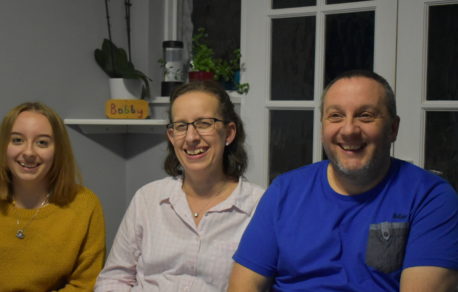
Creating a Lasting Power of Attorney (LPA): Everything you need to know
One of the best ways you can protect against the challenges dementia can bring is by creating a Lasting Power of Attorney (LPA). This #DementiaActionWeek, to coincide with our webinar minseries ‘Living well with dementia’ by Dr Kellyn Lee, we’ve invited our partners at Law Express to share some useful advice to help you navigate the process of creating an LPA, so you can enhance your own wellbeing or the wellbeing of those closest to you when it matters most.
What is a Lasting Power of Attorney (LPA)?
With the focus during Dementia Action Week 2022 being on the diagnosis of dementia, it seems like a good time to think about how we can prepare for times when extra help with ‘the stuff of life’ may be needed.
By this we mean for example when a friend or relative needs additional support to manage their finances and pay bills. To help with this, it may be reassuring to the family for a Lasting Power of Attorney to be created.
In this blog, we’ll explore the most frequently asked questions about this process to help you get started.
How do I make an LPA?
There are two types of LPA. One deals with finances, and the other deals with health and welfare issues.
Both can be created online, or you can download the forms instead to complete them.
Once completed they should then be registered with the Office of the Public Guardian (OPG), and the fee for this is £82 for each LPA.
How do I decide who to appoint as my attorney(s)?
The most important consideration is to appoint people that you trust.
They can be friends or relatives, but ideally they should be individuals who know you well and live close enough to be able to offer practical assistance when needed.
It is always useful to have more than one attorney as this allows checks and balances to be put in place and provides reassurance to you and other members of the family.
You can decide if your attorneys have to act jointly on all matters or whether they can also act individually (severally).
If I make an LPA, can it be used immediately?
For an LPA to be used by your attorneys it will need to be registered with the OPG. This currently takes about 20 weeks from when it is submitted.
It is also possible to state that the LPA should not be used unless/until you lose full mental capacity. Whilst this may be comforting to you, it can also make the appointment of attorneys less flexible.
There can still be times, prior to you losing mental capacity, when it would be useful for your attorneys to complete tasks on your behalf – for example, if you were to lose some physical capability.
Can I still sign an LPA even if I am diagnosed with dementia?
The very short answer to this is ‘yes’ provided that you understand the nature of the document you are preparing and signing.
Appointing attorneys to act on your behalf has to be something that you choose to do and not something which you are forced to do or do not understand.
What happens if I leave it too late and no longer understand what is required?
If this should happen it would then be for a member of your family, your partner or a close friend to apply to be appointed as deputy by the Court of Protection.
This is a separate process but very similar to appointing an attorney. There can be a deputy for finances and for personal welfare.
For more information on the legal support we offer to the engineering community, click here. You can also download the free Foothold app to access information and resources on a wide range of legal issues.



